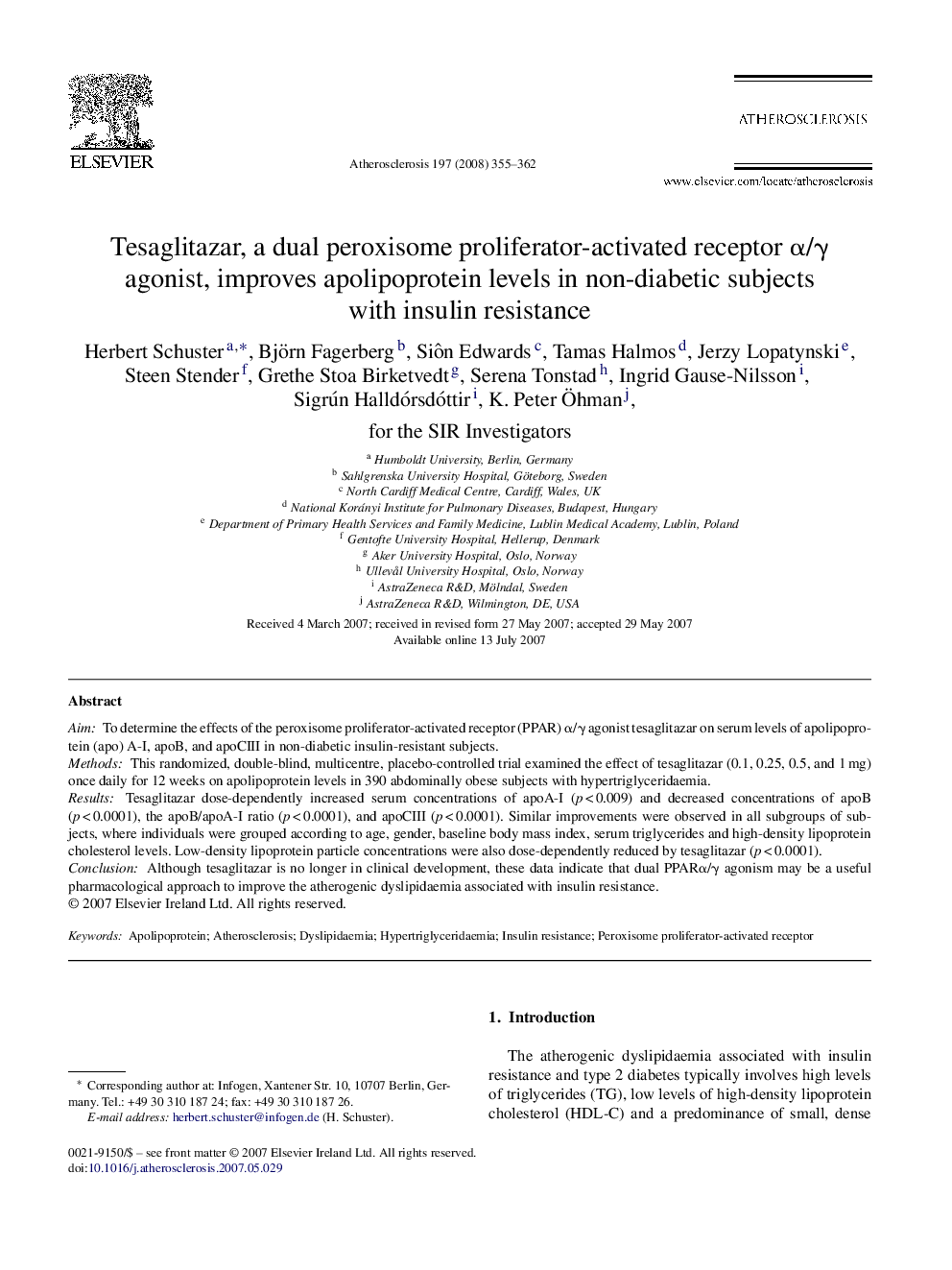| Article ID | Journal | Published Year | Pages | File Type |
|---|---|---|---|---|
| 2894765 | Atherosclerosis | 2008 | 8 Pages |
AimTo determine the effects of the peroxisome proliferator-activated receptor (PPAR) α/γ agonist tesaglitazar on serum levels of apolipoprotein (apo) A-I, apoB, and apoCIII in non-diabetic insulin-resistant subjects.MethodsThis randomized, double-blind, multicentre, placebo-controlled trial examined the effect of tesaglitazar (0.1, 0.25, 0.5, and 1 mg) once daily for 12 weeks on apolipoprotein levels in 390 abdominally obese subjects with hypertriglyceridaemia.ResultsTesaglitazar dose-dependently increased serum concentrations of apoA-I (p < 0.009) and decreased concentrations of apoB (p < 0.0001), the apoB/apoA-I ratio (p < 0.0001), and apoCIII (p < 0.0001). Similar improvements were observed in all subgroups of subjects, where individuals were grouped according to age, gender, baseline body mass index, serum triglycerides and high-density lipoprotein cholesterol levels. Low-density lipoprotein particle concentrations were also dose-dependently reduced by tesaglitazar (p < 0.0001).ConclusionAlthough tesaglitazar is no longer in clinical development, these data indicate that dual PPARα/γ agonism may be a useful pharmacological approach to improve the atherogenic dyslipidaemia associated with insulin resistance.
